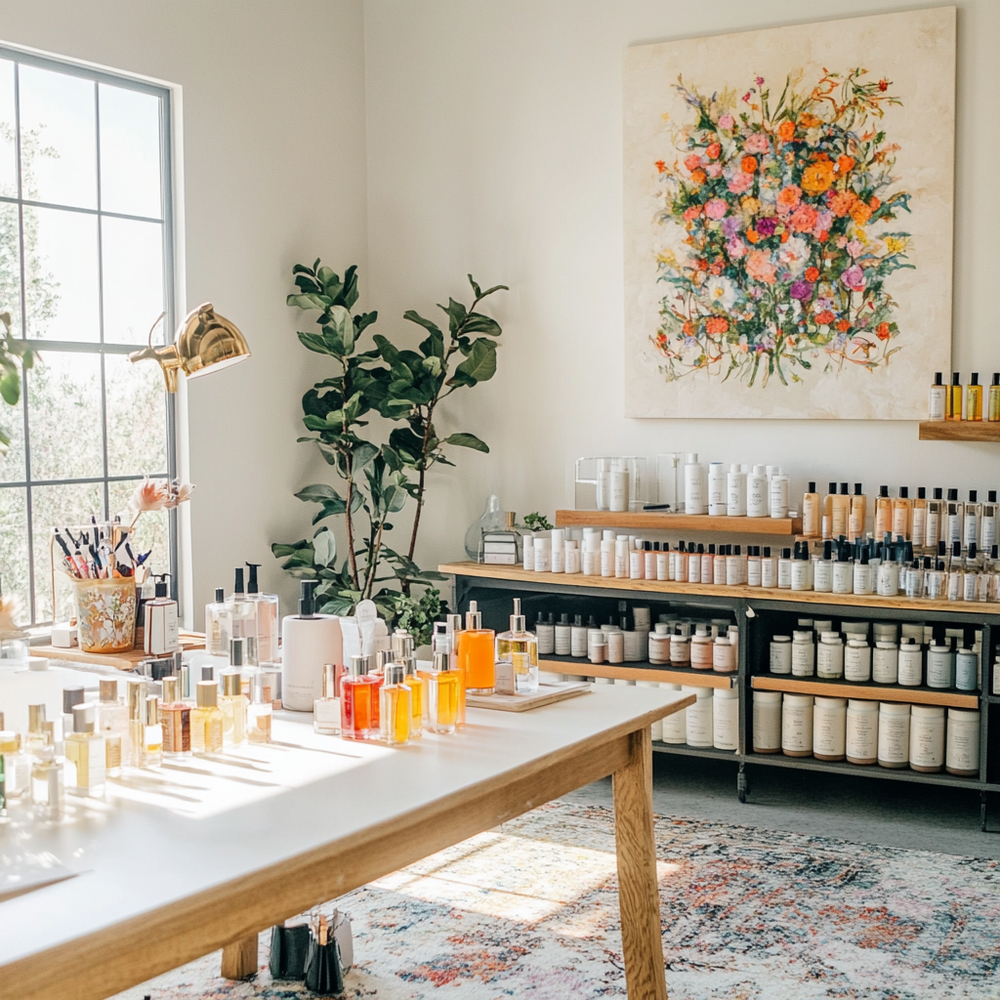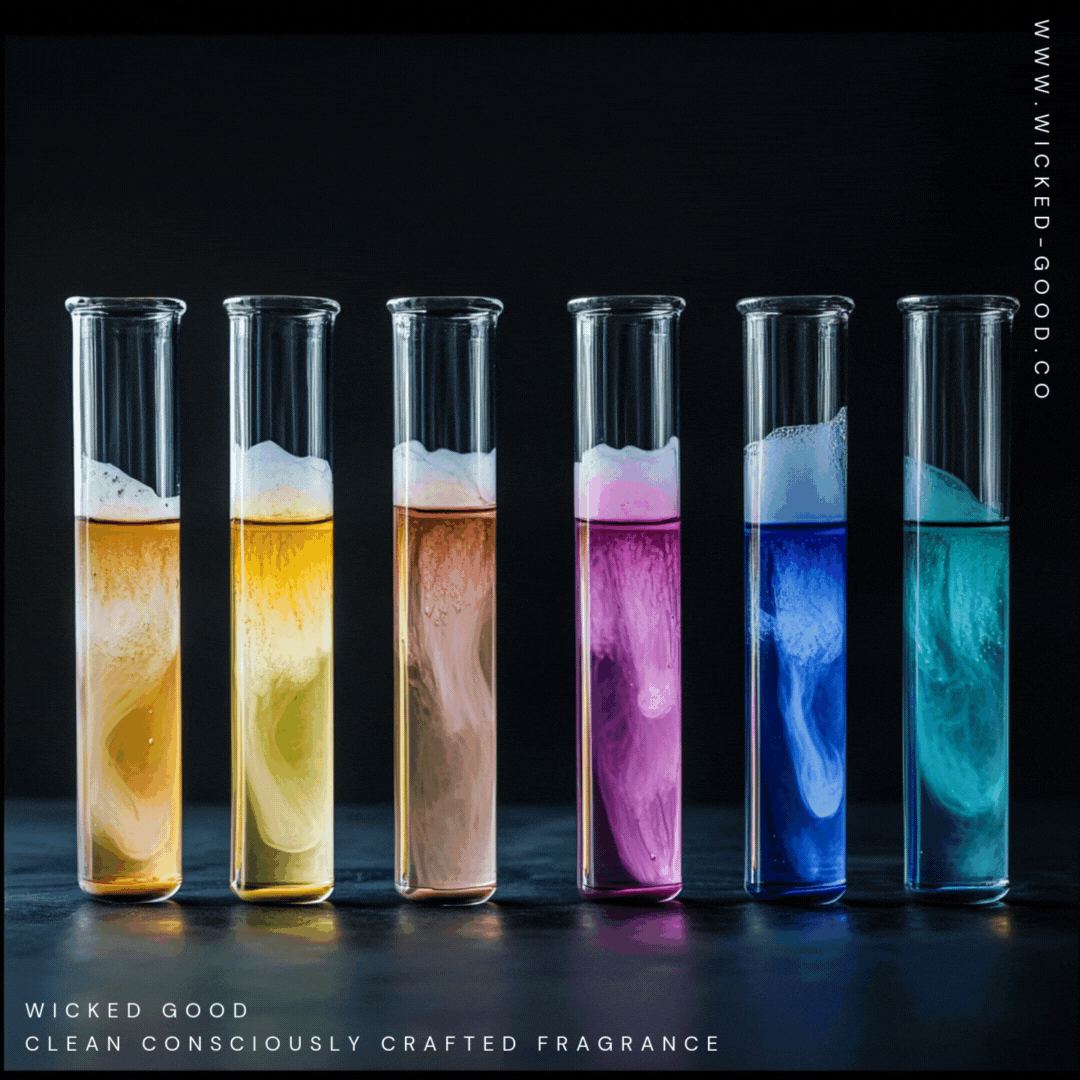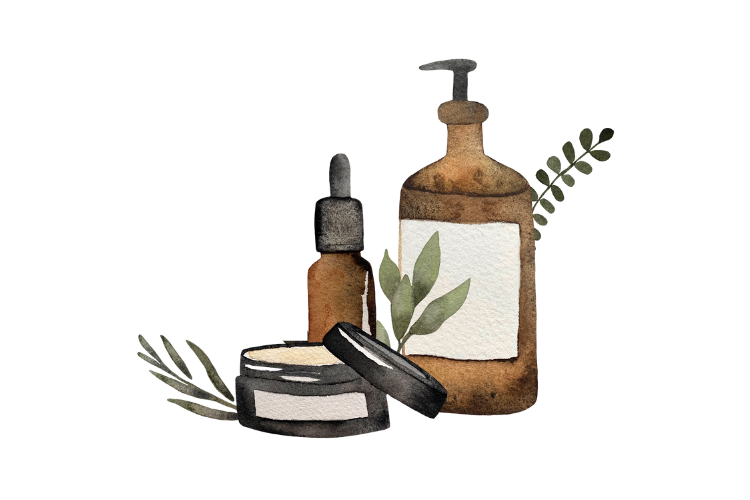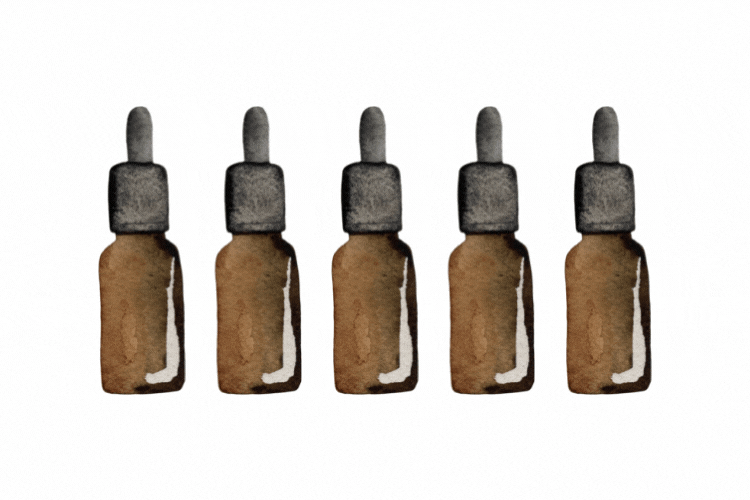What’s The Real Difference Between Eau de Toilette and Eau de Parfum?
Fragrance is vividly evocative. The area within the brain that controls memories, emotions, and scent are all intertwined, meaning that there is, without a doubt, an uncontrollable connection between your most powerful memories and fragrance. So, in a sense, selecting a perfume is not just choosing a scent, you’re also choosing how people will remember you.
That said, fragrance is undoubtedly one of the most personal beauty products you can purchase, and there’s a lot to unravel with each bottle: type, price, top notes, bottom notes (what?), not to mention how it mixes with your own unique body chemistry. But there’s one element you can be sure of, and that’s understanding the difference between the fragrance world’s two foundational categories: eau de toilette and eau de parfum.
Eau de Toilette vs. Eau de Parfum: The Lowdown
Turns out, the key difference between the two types isn’t so nuanced after all; in fact, it’s wildly straightforward and scientific.
An eau de parfum has a higher concentration of fragrance oil than an eau de toilette. In the fragrance world, the order of highest to lowest concentration is pure perfume, which tends to be sold as: eau de parfum, eau de toilette, and eau de cologne.
Generally, an eau de parfum is composed of 15% to 20% perfume oil, while an eau de toilette scales a little lower, ranging from 5% to 15%.
- Eau Fraiche - 1% - 3%
- Eau de Cologne - 2% - 4% | Cologne
- Eau de Toilette - 5% - 15% | Perfume Mist
- Eau de Parfum - 15% - 20% | Perfume Spray
- Parfum - 20% - 30% | Perfume Oil
Precise compositions will vary between brands, but it’s a safe bet to think of an eau de toilette as “lighter and fresher, while a parfum tends to be “more dense and richer” due to its higher concentration.
Do Eau de Parfums and Eau de Toilettes Smell The Same?
If both types of fragrance are made with the same notes, then yes, they would smell similar, but not exactly the same. For example, a spritz of lavender eau de parfum would release a higher concentration of fragrance than an eau de toilette, and as the level of fragrance oil is increased, certain notes can develop on the skin to be richer, sharper or sweeter, depending on the chemical makeup of the scent.
Different concentration levels of the same fragrance can be extremely subtle, which is all part of the fun, which allows different notes or ingredients to breathe, creating a singular experience for the wearer.
Wicked Good fragrances, fragrance are the same between the two types, but each has a slightly different dimension.
The bottom line: consider the same scent in the two different forms to be sisters, not twins, within the fragrance family — there will be hints of similarities, but each will definitely be unique.
Does an Eau de Toilette or Eau de Parfum Ever Expire?
Depending on the quality of ingredients and where it’s stored, most perfumes have a shelf life of at least three to five years, but it really comes down to each scent’s architecture.
An eau de toilette tends to age a little slower, thanks to the higher concentration of alcohol in the formulation, which acts as a protective preservative. On the flip side, clean and alcohol-free fragrances will lose intensity the fastest.
To maximize the shelf life of either an eau de parfum or an eau de toilette, Wicked Good recommends keeping it in a cool, dry, and dark location.
Beware of excessive light, variations in temperature (especially heat), and exposure to oxygen, as they will accelerate any fragrance’s deterioration. And if the perfume’s color shifts to a darker hue, or the scent becomes a little sour or musty, it’s time to retire.
The hard, sad truth: although your perfume bottle may look chic and trés Instagrammable on your sun-lit vanity, it’s probably not the wisest choice.
Do Eau de Parfums Last Longer Than Eau de Toilettes?
For the most part, eau de parfums should last longer, but different notes carry different patterns of longevity. “You can’t compare, let’s say, a fruity, very fresh eau de parfum with a very woody eau de toilette. Fruity and fresh notes tend to be top notes and evaporate faster, even at higher concentrations.
But maybe the coolest whimsy of all types of perfumes is that each wearer’s experience of a fragrance is different, depending upon how the formulation reacts with their skin’s specific oils. In other words, don’t blindly buy the perfume that smells divine on your best friend, because it might smell less than savory on you.
Fragrance adheres to oils, and those with drier skin may need to wear a higher concentration of fragrance in order to have an impact.
Above all, you must obey the golden rule of scent: Never judge a fragrance until you try it on your own skin.
Is An Eau de Toilette “Cheaper” Than An Eau de Parfum?
Looking at price points between the two, it’s easy to judge an eau de toilette as a cheaper, and therefore less sophisticated product, but cost doesn’t tell the whole story.
Eau de toilette is less expensive because they have a lower concentration of fine fragrance oil. Its' not because the ingredients are different.
The intensity of the fragrance you want to wear is entirely up to you, and you should wear what you connect with and what smells good on you, regardless of concentration.
Think of an eau de toilette and eau de parfum as two types of perfume options that are available to you depending on what you’re looking for, not a stark either/or situation, and definitely not a representation of who you are as a person. After all, people aren’t going to be looking at the bottle while you’re out and about.
Wicked Goodness, The Wicked Good Difference
Perfume Spray
Eau de Parfum
Our signature product, our Perfume Spray uses alcohol to bring a fragrance to life. It exposes the top, middle and base layers, so it's like fireworks. Perfume sprays provide a mist of scent with fantastic staying power. Expect a slight alcohol scent at first, which will quickly evaporate, leaving only fragrance. A one ounce, glass bottle is good for about 180-200 sprays. Size: 1oz (30mL). Cant' decide on a scent? Try a Wicked Good Perfume Palette.
Perfume Oil
Parfum Oil
The rollerball applicator is catching on fast in fine fragrance. It's neat, travel friendly and ideal for post-gym or on the go applications. Perfume Oil rollers offer more control than a spray, over exactly how much you roll on and where. Like conventional perfumes, roll-ons have the most oomph when applied wherever the body releases heat – inside the wrists, creases of the elbows, the neck. Perfume oils are light, quickly absorbed. They’re a discrete way to reapply without irritating your neighbors. Size 10mL.
Perfume Mist (aka Everything Spray)
Eau de Toilette
Alcohol-free and non-drying, our refreshing Perfume Mist instantly revitalizes in one spritz. The packaging is small enough to stick in your car, your gym bag or your purse for easy access. It’s great for a quick pick-me-up in the middle of the day.
Freshen a room with Perfume Mist. Mist laundry on the line, pre-iron or post-dryer. Wake up linens: sheets, pillows, and blankets. Use anywhere and everywhere. Spray it on your pet bed. Take it with you to on the go; from the gym, yoga mat spray or transform your office or hotel space, instantly.
Each spritz gives off the perfect mist to keep every room smelling fresh and bright and surround you with incredible scent all day long. This versatile spray is safely used to create a signature scent everywhere or anywhere.
How Do I Choose Between an Eau de Toilette and an Eau de Parfum?
The simplest way to choose one over the other is to ask yourself how strong you want your fragrance to be. An eau de parfum’s higher concentration of fragrance makes for a longer lasting, more aromatic scent, while an eau de parfum is more like a body splash to be applied more liberally than a parfum.
We recommend trusting your nose’s own instincts to see what scents and notes you naturally gravitate towards before committing to a specific type.
And above all, shake off the seriousness! Don’t be afraid to explore all available fragrance variations of a scent you enjoy.
How Do I Wear an Eau de Toilette or an Eau de Parfum?
We’ve all experienced the coworker or fellow subway-rider with a scent so overpowering, it’s nearly impossible to focus on just about anything else. To avoid being that person, a little awareness about a scent’s wearability goes a long way.
In hot, sticky, summer months, reach for an eau de toilette because there’s something fresh and light and easy to wear about a lighter concentration.
Rich, full bodied eau de parfums pair nicely with evening activities and colder climes, as scent dissipates faster in dry air, so you’ll need a higher fragrance concentration for the same scent payoff.
For a daytime wear of either fragrance, spray the scent directly onto pulse points — neck or wrist — and to amp it up for the evening, add an air-spritz and walk through it, or loosely spray the perfume once or twice into long hair for an easy, wafting scent with movement.
Wearing a fragrance is a fine art and a balancing act, but it adds a whole other level of playful self-expression without ever saying a word.
In conclusion, knowing the difference between perfume, cologne, and other fragrances is essential in finding the right scent that complements your personality and lifestyle. Understanding the concentration levels of each type of fragrance can help you determine the strength and longevity of the scent on your skin.
By choosing the right fragrance, you can make a lasting impression and feel confident throughout the day. Whether you prefer a classic, all-day wear fragrance, a lighter option for daytime, or a quick refresher, there's a type of fragrance that will work for you. So, go ahead and explore the wonderful world of fragrances and find the perfect scent that makes you feel and smell amazing.
Did you know Wicked Good also makes a full line of made to order, personalized bath and body and home products? #SmellWickedGood
































Leave a comment